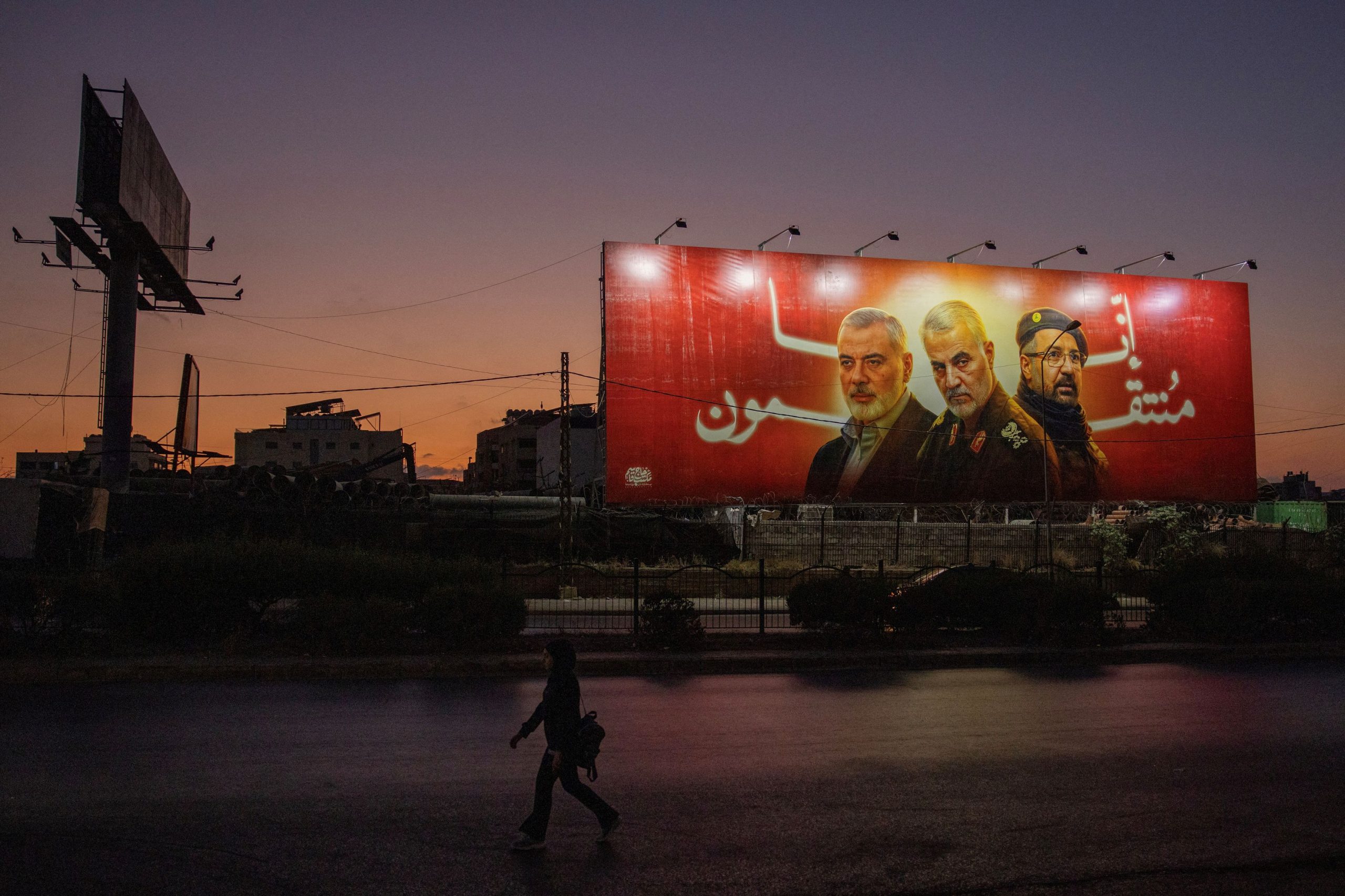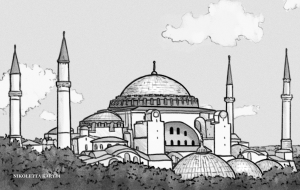TEL AVIV — As Israel braces for an attack from Iran and its ally Hezbollah, there is a debate here over whether now is the right time for the country to launch an offensive attack against the Lebanese militia or try to de-escalate to avoid triggering a wider regional war.
The U.S. has been working feverishly behind the scenes to avoid an escalation that could lead to a regional war. The Biden administration is expected to send a senior delegation to the region this week to work on that effort.
Inside Israel, there is a split. Some, like Defense Minister Yoav Gallant , say now is the time for a cease-fire in Gaza that would see the release of hostages and help calm tensions on the northern border so the thousands of Israelis displaced there can return home. Israeli Prime Minister Benjamin Netanyahu has said he doesn’t want a war but has promised a “heavy price” in response to an attack.
But there is also a growing number of current and former security officials, as well as politicians from the center, right and far-right, who think the timing could be ripe for Israel to take an offensive approach with Hezbollah, which has amassed more than 100,000 rockets, missiles, drones and other projectiles along Israel’s northern border.
The leadership of Israel’s northern command, the military branch responsible for defending the border with Lebanon, is pushing for a more aggressive approach against Hezbollah than Israel has taken during the current war, say current and former Israeli officials.
One senior security official said a disproportionate response by Hezbollah could “lead to an Israeli attack that will lead to a new reality on the northern border.”
Amos Yadlin , a former intelligence official and president of MIND Israel, a national security consulting firm, said a diplomatic deal, while preferable, is unlikely at this point. Strategically, he thinks Israel should wait until after a Hezbollah attack so it has the justification needed to launch a swift and strong campaign that can cripple the group in a matter of days or weeks while enjoying U.S. support.
“Enough is enough,” said Yadlin. “Since Hamas is basically destroyed, it is time to move to the north.”
Within Netanyahu’s cabinet, far-right national security minister Itamar Ben-Gvir has been calling for a war with Hezbollah as have members of Netanyahu’s right-wing Likud party. Even centrist politicians, like National Unity party chairman Benny Gantz , have called for Israel to strike Lebanese infrastructure, an offensive move that is likely to start a war.
A war between Israel and Hezbollah has long been considered inevitable so it is just a question of timing, say security analysts. With an anticipated retaliatory strike from Iran and Hezbollah for killings in Beirut and Tehran , Israel could have the justification it needs to hit the group hard enough to deter future attacks for many years to come. Israeli troops are amassed at the border. Israelis are psychologically prepared for a war. And the U.S. has moved assets into the region, including a guided-missile submarine.
There is also tremendous pressure on the government to deal a blow to Hezbollah so that the 60,000 Israelis who have been displaced can return home.
“I don’t see any way to return residents to northern Israel without a powerful war against Hezbollah in Lebanon,” said Yoav Kisch , education minister and a member of Netanyahu’s coalition, in a radio interview on Sunday.
Yet after 10 months of war in Gaza, some argue that now is exactly the wrong time to enter into another war. Israeli reservists are exhausted . The economy is struggling. Fitch on Monday lowered the country’s credit rating, citing military operations on multiple fronts. The country also needs time to replenish its stock of weapons.
More dangerously, destroying Iran’s most powerful proxy risks a direct confrontation with Tehran, one that would likely lead to a full-blown regional war that could spread beyond the Mideast, likely dragging the U.S. into the conflict. The U.S., Europe and Arab allies in the Mideast have all been working to avoid such a scenario since the Hamas-led Oct. 7 attack that sparked a war in Gaza and the near-constant volley of attacks between Hezbollah and Israel.
Gallant on Monday pushed back against those calling for war with Hezbollah. “I’ve seen this courage when it comes up for discussion,” he said at a parliamentary hearing. “The conditions for war in Lebanon that exist today are the opposite of what they were at the beginning of the war.” The Wall Street Journal reported that Gallant had advocated for an Israeli attack against Lebanon right after Oct. 7, but President Biden successfully urged the Israelis to halt such plans.
Such a war would be devastating for both sides. Hezbollah is more like a well-armed military than a traditional militant group, with enough missiles and drones to overwhelm Israel’s air defenses and thousands of well-trained infantry to storm its territory. With civilian casualties likely on the Israeli side, the country’s military would seek to finish the war as quickly as possible through a punishing air campaign targeting the group, which is embedded in villages along the southern border, and Lebanese infrastructure, security analysts say. Israel would likely raze Lebanese villages located near Israel and could reoccupy southern Lebanon and create a new buffer zone, the analysts said.
Hezbollah, a U.S.-designated terrorist group and a key ally of Hamas, has vowed to keep fighting until the war in Gaza comes to a halt.
Some are arguing that the military should pre-emptively strike in Lebanon.
“There is a huge difference who attacks first,” said Amir Avivi , a former deputy commander of the Israeli military’s Gaza division who now heads the Israel Security and Defense Forum, a think tank.
He said Israel would destroy 80% to 85% of Hezbollah’s capabilities in an pre-emptive attack.
“If [Hezbollah] attacks first, then it can be devastating,” he said.
U.S. and allied countries have been working on the outlines of an Israeli-Hezbollah agreement that would have seen the group moved away from Israel’s border. But those talks have stumbled along with attempts to reach a cease-fire in Gaza. Many in Israel also argue that any diplomatic agreement without a military response would simply delay an inevitable war, as Hezbollah would likely return to Israel’s border and renew hostilities in the future.
In a poll released by the Jerusalem-based Israel Democracy Institute, 67% of Israelis support a more aggressive approach to Hezbollah, 42% of which said it should include strikes on Lebanese infrastructure.
Giora Eiland , a former Israeli national security adviser, said Israel should agree to a cease-fire in Gaza and bring Israeli hostages home, even if it means Hezbollah stays intact and Hamas survives in Gaza for now.
But if Israel’s government doesn’t make that decision, then he said it should launch a full-scale war against the Lebanese state rather than continuing the status quo.
“The two options are bad,” said Eiland. “We simply need to select one.”
Write to Dov Lieber at dov.lieber@wsj.com



